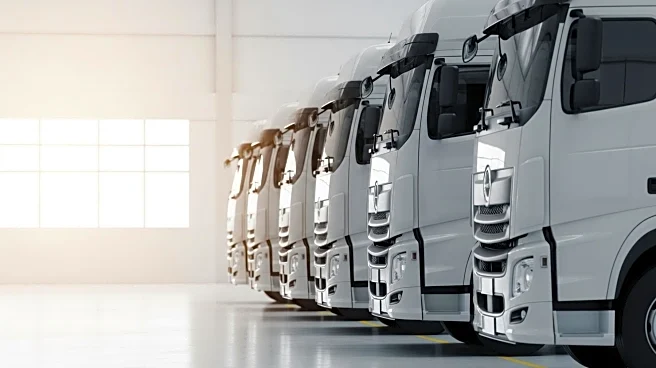What's Happening?
The trucking industry is facing prolonged economic challenges, including a freight recession that has persisted longer than anticipated. Fleet managers are grappling with the decision to invest in new trucks amidst rising costs and uncertain economic conditions. The article highlights the importance of proactive investments in capital equipment, particularly diesel trucks, to mitigate long-term costs. Fleet operators are encouraged to purchase new trucks at current pricing levels to avoid future price hikes driven by emissions compliance and research and development costs. Delaying purchases could result in higher acquisition and financing costs, impacting fleet profitability and market positioning.
Why It's Important?
Investing in new trucks now is crucial for fleet operators to maintain competitive operating costs and market positioning. As truck prices are expected to rise due to emissions compliance and other factors, early investments can help fleets lock in lower costs and avoid paying premiums later. This strategy not only reduces long-term expenses but also strengthens fleet profitability and market position. The trucking industry, a vital component of the U.S. economy, must navigate these challenges to ensure continued growth and stability.
What's Next?
Fleet operators face a choice between securing 2025 model year trucks at current pricing or risking higher costs for similar equipment in the future. The decision to invest now could position fleets to better weather economic uncertainty and stay ahead of the competition. As emissions regulations evolve, fleets may need to adapt to new compliance requirements, further influencing investment strategies.









